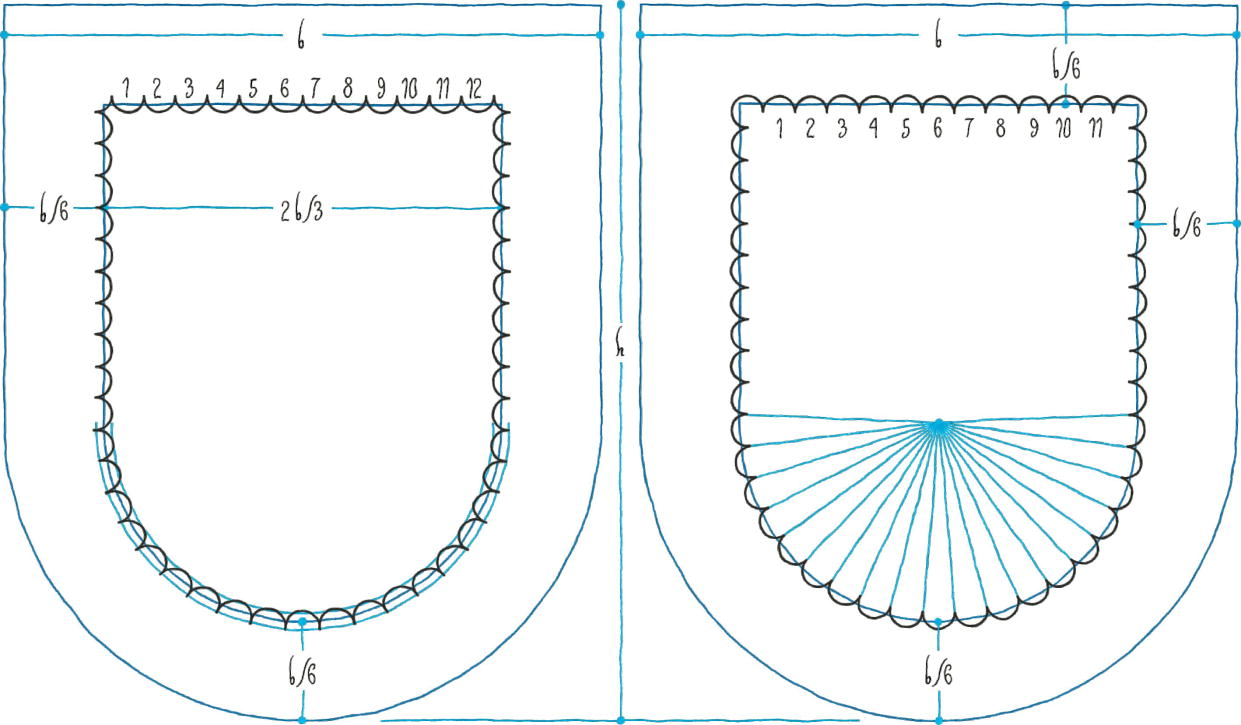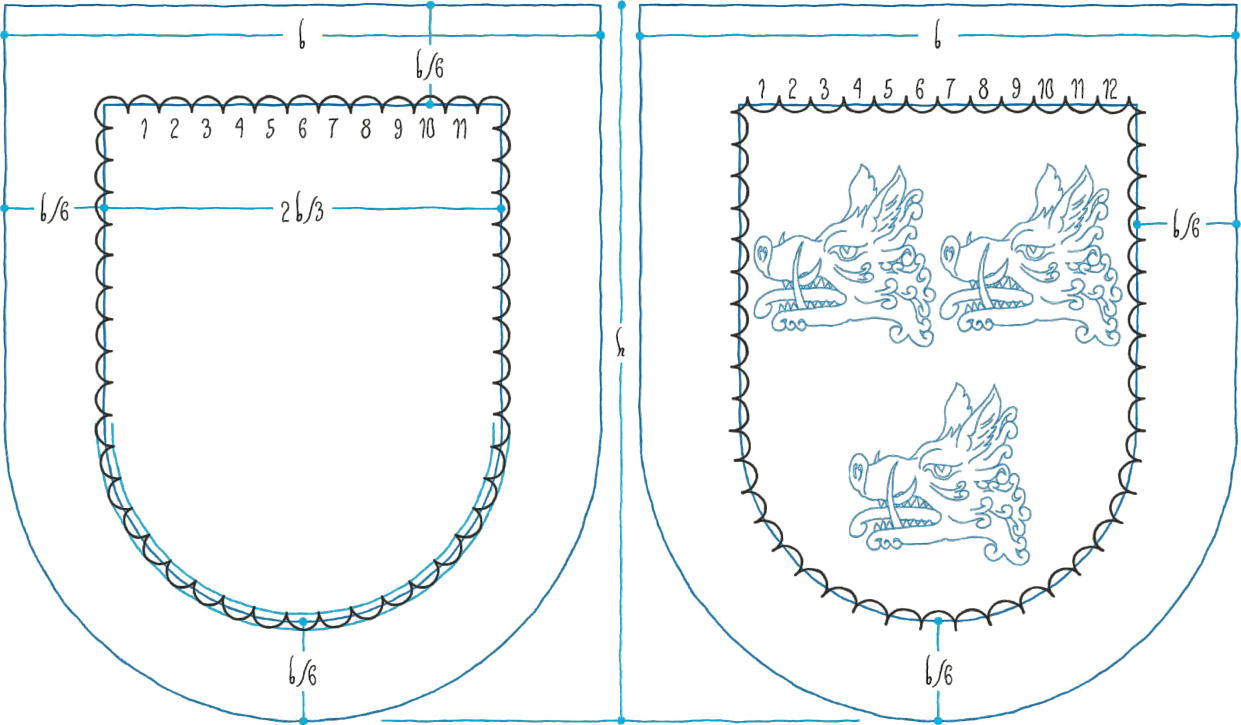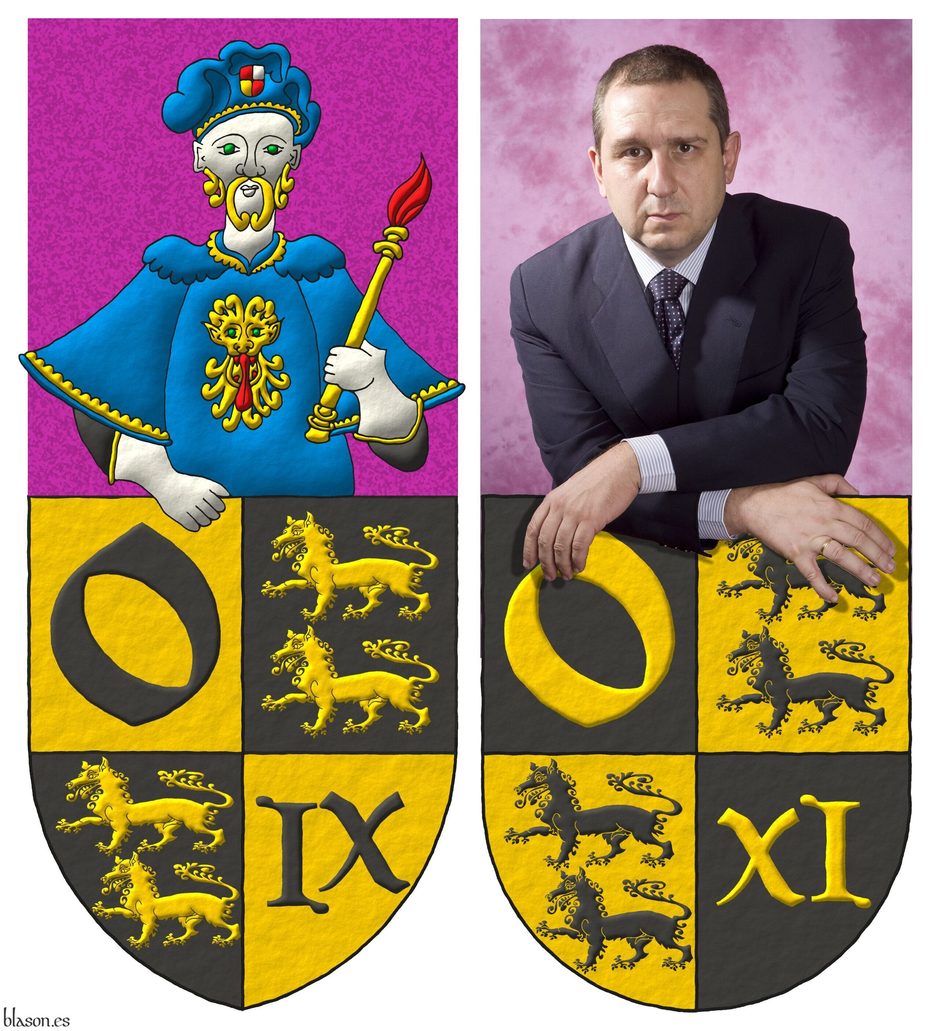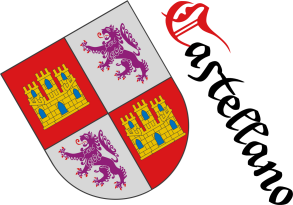
![Ver [Nisbet, A.; 1816] en referencias bibliográficas. Libro abierto, hojas de plata, filo de oro, guardas de gules, tapas de sable.](../css/Libro.Bibliografia.png)
Nisbet, A.; 1816
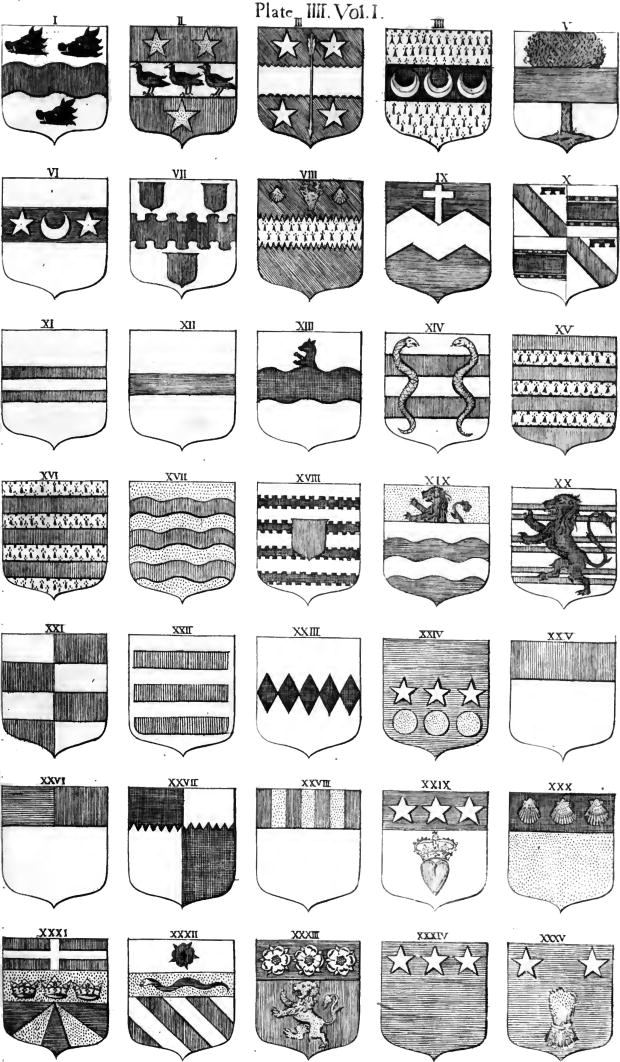
Alexander Nisbet, «System of Heraldry Speculative and Practical: With the True Art of Blazon», subtitle «according to the most approved heralds in Europe: illustrated with suitable examples of armoria figures, and achievements of the most considerable surnames and families in Scotland, together with historical and genealogical memorials relative thereto», printed by William Blackwood de Ediburgo and Rodwell and Martin of London, Edinburgh, 1816.
This is the edition I consult and the 1st edition of this book is [Nisbet, A.; 1722].
The illustration accompanying this bibliographic reference corresponds to page 43 of this edition of 1816.
Bibliographical reference of century XIX.
Author: Nisbet, Alexander.
The following articles cite this bibliographic reference:
External links:
Internal resources: NisbetA1722.SystemHeraldry.pdf.


Alexander Nisbet, schema
Bordure engrailed and bordure invected.
Painting inspired in [Nisbet, A.; 1816; page 21, pictures 1 and 2], but with the 3 boar's heads of Alexander Nisbet within the 2nd bordure invected.
Blazon writen by the College of Arms for the coat of arms of Michael John Huxley-Evans «Per fess nebuly Sable and Ermine in chief a Rose Argent barbed and seeded proper within a wreath of Thorns Or in base three Boar's Heads erased Sable armed Or.», but to differentiate from the «armed» of the claws, I prefer «tusked» to «armed» for the defenses/tusks of the boar's heads.
Blazon keywords: Bordure, Invected, Engrailed, Head and Boar.
Style keywords: Semi-circular.
Classification: Schema.
Bearer: Nisbet, Alexander.


![Ver [Shakespeare, W.; 1608] en referencias bibliográficas. Libro abierto, hojas de plata, filo de oro, guardas de gules, tapas de sable.](../css/Libro.Bibliografia.png)
Shakespeare, W.; 1608
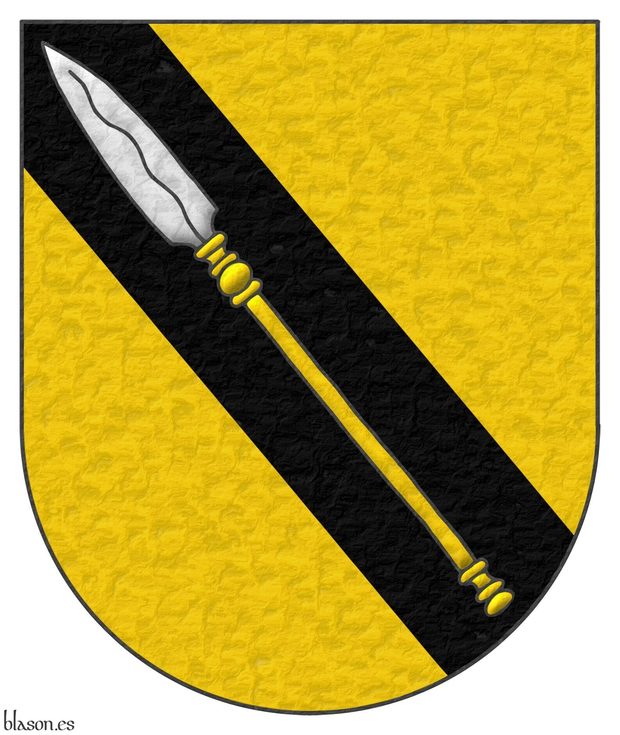
William Shakespeare, «Coriolanus», Tragedy in 5 acts and 29 scenes, written in verse, dated to either 1608 or 1609, depending on the sources.
It is one of the last works written by William Shakespeare, a tragedy based on the life of Caius Marcius Coriolanus, a legendary Roman general from the 5th century B.C. Some authors consider General Coriolanus to be a historical figure, while others do not.
Initially known only as Caius Marcius, during the war against the Volsci he becomes a hero by entering the city of Corioli with a few soldiers, and from then on, he is called Caius Marcius Coriolanus.
Act 3, Scene 2, Volumnia, mother of Coriolanus
I prithee now, my son,
Go to them, with this bonnet in thy hand;
And thus far having stretch'd it (here be with them)
Thy knee bussing the stones (for in such business
Action is eloquence, and the eyes of the ignorant
More learned than the ears) waving thy head,
Which often, thus, correcting thy stout heart,
Now humble as the ripest mulberry
That will not hold the handling: or say to them,
Thou art their soldier, and being bred in broils
Hast not the soft way which, thou dost confess,
Were fit for thee to use as they to claim,
In asking their good loves, but thou wilt frame
Thyself, forsooth, hereafter theirs, so far
As thou hast power and person.
Bibliographical reference of century XVII.
Author: Shakespeare, William.
External resource:


![Ver [St. George's Roll; 1285] en referencias bibliográficas. Libro abierto, hojas de plata, filo de oro, guardas de gules, tapas de sable.](../css/Libro.Bibliografia.png)
St. George's Roll; 1285
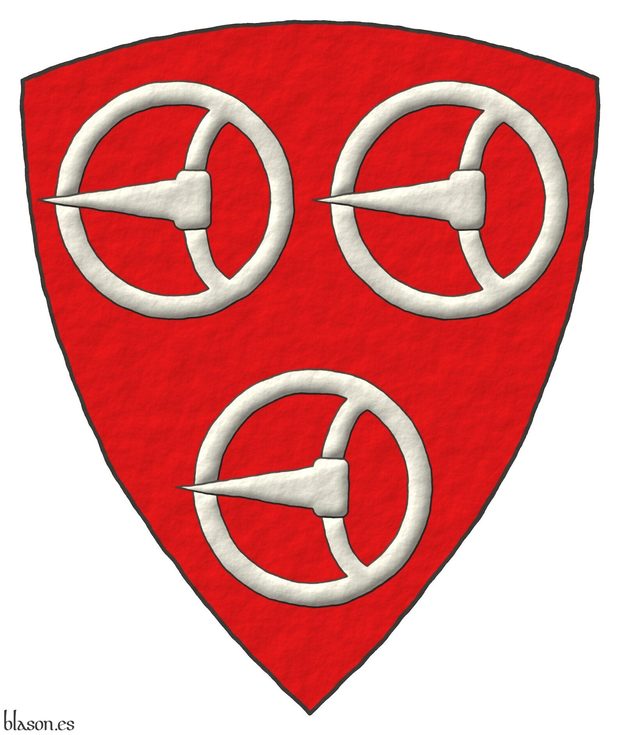
St. George's Roll, in English usually written as «MS Vincent, 164 ff.1-21b», also called [Vincent, MS; 1285], it is in the College of Arms, London, containing 677 painted coats of arms, it is an English roll or arms dating from c. 1285.
The bibliographical reference that I mainly use for this armorial is [Vincent, MS; 1285].
Bibliographical reference of century XIII.
Classification: Armorial roll and Manuscript.
The author is unknown.
Bibliographic reference mentioned in the following articles:
- Adam de Cretingges
- Bartholomew de Yattendon
- Brian Timms
- Edmund de Bassingburnn
- Howel ap Res
- James de Sottone, le Fitz
- Joan de Okinton
- John de Beauchamp
- John de Ladbrooke
- John le Sturmy
- Nicholas Malmains
- Norman Darcy
- Ricardo de Mandeville
- Robert de Malet
- Simon de Crombe
- Simon de Ver
- Simon le FizSimon
- Thomas Roscelyn
- Thomas de Werblintone
- Thomas le FizThomas
- Vincent, MS; 1285
- Warbrentone, Thomas de
- William Bardolf
- William de Ferrers, Earl of Derby
- William de Hondeshacre


![Ver [Heralds International] en enlaces recomendados. Áncora de oro y la divisa enlace.](../css/Ancora.Enlace.png)
Heralds International
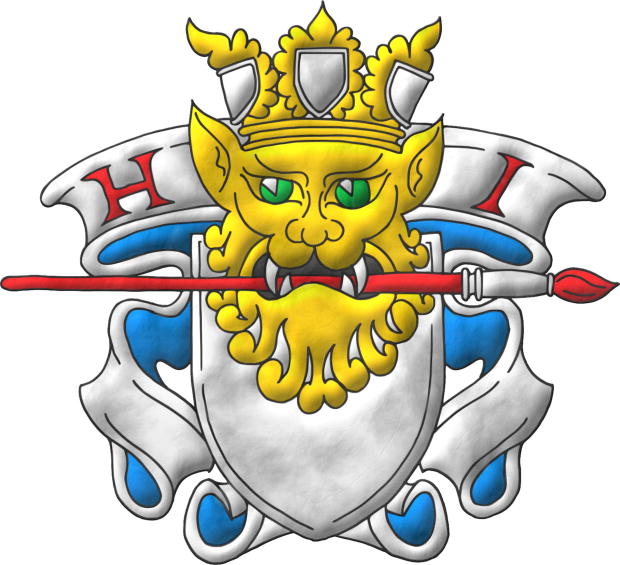
Internet addresses:
I was honored with their announce of my incorporation to Heralds International, the announce was the following:
- «Dr. Antonio Salmeron has recently joined Heralds International as a Member Artist and so we thought we would feature some of his work. A longer article will follow later but Dr. Salmeron has described his work thus»:
- «My style as a heraldic artist is clear, symbolic and methodical. Clear because my work searches pieces which transmit energy and vital force to the owner, I think that a coat of arms should be a source of light and joy and an expression of freedom. Symbolic because coats of arms must be a representation of its bearer, his/her ideals, motivations, history and anything he/she might want to display. Methodical because heraldic art is founded on a science, the so called science of heraldry».
- «We look forward to featuring more of his work very soon».
Categories: Link and Heraldry and heralds.


![Ver [Vincent, MS; 1285] en referencias bibliográficas. Libro abierto, hojas de plata, filo de oro, guardas de gules, tapas de sable.](../css/Libro.Bibliografia.png)
Vincent, MS; 1285
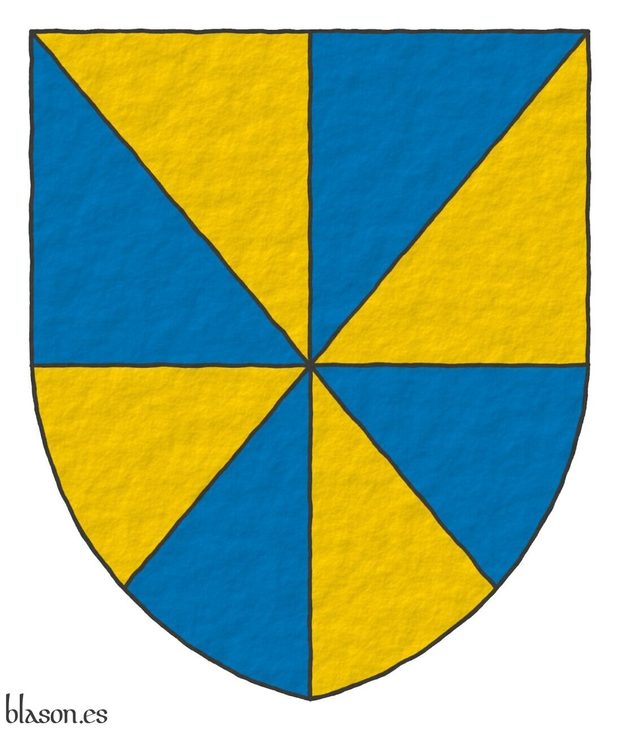
Vincent Manuscript, in English, usually written as «MS Vincent, 164 ff.1-21b», also called [St. George's Roll; 1285], it is in the College of Arms, London, containing 677 painted coats of arms, it is an English roll of arms dating from c. 1285.
Bibliographical reference of century XIII.
Classification: Armorial roll, Manuscript and In color.
Author: anonymous.
The following articles cite this bibliographic reference:
- Adam de Cretingges
- Bartholomew de Yattendon
- Costa i Cases, P.; Century XVIII
- Edmund de Bassingburnn
- Howel ap Res
- James de Sottone, le Fitz
- Joan de Okinton
- John de Beauchamp
- John de Ladbrooke
- John le Sturmy
- Nicholas Malmains
- Norman Darcy
- Ricardo de Mandeville
- Robert de Malet
- Simon de Crombe
- Simon de Ver
- Simon le FizSimon
- St. George's Roll; 1285
- Thomas Roscelyn
- Thomas de Werblintone
- Thomas le FizThomas
- William Bardolf
- William de Ferrers, Earl of Derby
- William de Hondeshacre


![Ver [Wijnbergen; 1265] en referencias bibliográficas. Libro abierto, hojas de plata, filo de oro, guardas de gules, tapas de sable.](../css/Libro.Bibliografia.png)
Wijnbergen; 1265
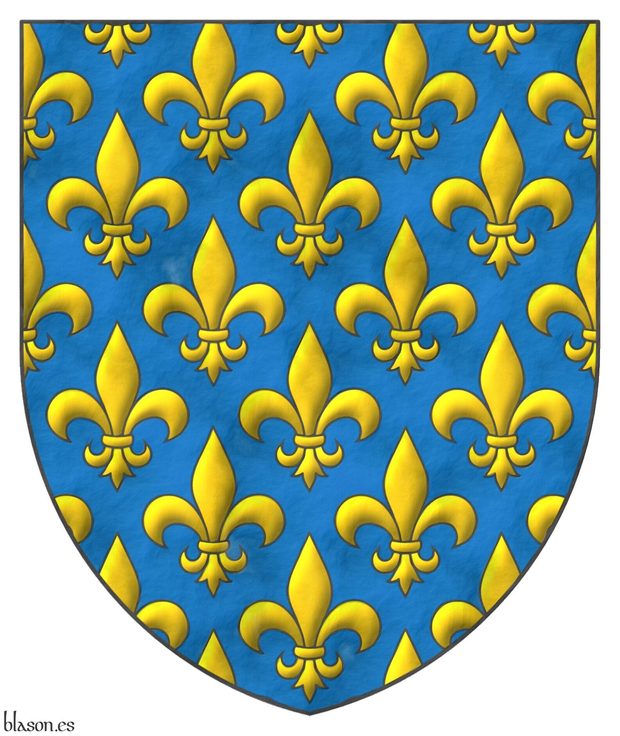
Wijnbergen, unknown authors, «Wijnbergen Armorial», currently located in The Hague and owned by the Royal Dutch Society of Genealogy and Heraldry, Île-de-France, 1265.
This armorial is called «Wijnbergen» because it was named after one of its early owners, and the names of its authors are unknown. I have retained this name in the key to this bibliographic reference for easier identification.
Among known manuscripts, it is the oldest armorial of French heraldry.
It is composed of 15 parts, although some authors divide it into 23, belonging to 2 different temporal stages of creation: a 1st stage from 1265 to 1270 and a 2nd stage, more difficult to date, from 1270 to 1285.
The armorial is written in French and contains a total of 1,312 coats of arms, of which 256 belong to the 1st stage and 1,056 to the 2nd stage.
Those of the 1st stage belong to the vassals of the Île-de-France under the reign of Luis IX de Francia, Saint Louis King of France.
Those of the 2nd stage, probably already under the reign of Felipe III de Francia, contain coats of arms from Normandy, Anjou and Poitou, Lorraine, Germany, Artois, Champagne, Vermandois, Brittany, Beauvais, Burgundy, Brabant, Hainaut (Belgium), Flanders, and finally, the coats of arms of 25 kings, mainly European.
Bibliographical reference of century XIII.
The author is Wijnbergen, Anonymous.
Bibliographic reference mentioned in the following articles:
External links:

Continue with: Martos García, Juan Carlos.
-
Language
-
Categories of heraldry
-
Divisions of the field
- Without divisions
- Party per pale
- Party per fess
- Party per bend
- Party per bend sinister
- Tierce
- Tierce sinister
- Tierced per pale
- Tierced per fess
- Tierced per bend
- Tierced pallwise inverted
- Quarterly
- Quarterly per saltire
- Gyronny
- Party per fess, the chief per pale
- Party per pale, the sinister per fess
- Party per fess, the base per pale
- Party per pale, the dexter per fess
- Chapé
- Chaussé
- Embrassé
- Contre-embrassé
- Party per chevron
- Enté
- Enté en point
- Flanched
-
Metals
-
Colours
-
Furs
-
Other tinctures
-
Ordinaries and sub-ordinaries
-
Diminutives of the ordinaries
-
Geometric charges
-
Composite ordinaries
-
Inanimate charges from Nature
Atom, Crescent, Diamond, Emerald, Estoile, Increscent, Lightning flash, Moon, Mount, Mullet, Mullet of four points, Orbital, Plough of Ursa Major, Rainbow, Ray of the sun, River, Sea, Snowflake, Sun, Sun in splendour, Sun of May, Terrestrial globe, Trimount, Water and Wave.
-
Vegetal charges from Nature
Acorn, Apple, Apple tree, Ash, Bluebonnet, Camellia, Chrysanthemum, Cinquefoil, Cornflower, Dogwood flower, Double rose, Eguzki-lore, Elm, Fleur de lis, Flower, Gourd, Holm oak, Hop cone, Indian paintbrush, Kapok tree, Laurel, Lily, Linden, Lotus flower, Madonna lily, Mexican cedar tree, Oak, Olive tree, Palm tree, Plantain plant, Pomegranate, Poplar leaf, Rose, Shamrock, Sunflower, Thistle, Tree, Tulip, Vine and Wheat.
-
Animal charges from Nature
Badger, Bald eagle, Barbel, Barn owl, Bear, Beaver, Bee, Beetle, Bighorn sheep, Binson, Blackbird, Boar, Brach hound, Bull, Cow, Doe, Dog, Dolphin, Dove, Eagle, Elephant, Falcon, Female figure, Fish, Flame, Fly, Fox, Frog, Goat, Goldfinch, Goose, Heron, Horse, Hummingbird, Jaguar, Lark, Leopard, Lion, Lion passant, Lion rampant guardant, Lioness, Lynx, Male figure, Martlet, Merino ram, Owl, Panther, Parrot, Peacock, Pelican, Pelican in her piety, Pronghorn, Puffin, Quetzal, Raven, Roe deer, Rooster, Savage, Seagull, Serpent, She-wolf, Stag, Starling, Talbot, Turtle, Tyger, Vulture, Warren hound and Wolf.
-
Parts of natural charges
Arm, Beak, Branch, Caboshed, Chest, Claw, Covert, Dorsal fin, Eagle claw, Ear of wheat, Ermine spot, Escallop, Feather, Foot (palmiped), Foreleg, Forepaw, Hand, Head, Heart, Hoof, Leaf, Neck, Ostrich feather, Palm frond, Paw, Roe deers' attires, Shoulder, Sprig, Stags' attires, Stem, Swallow-tail, Tail, Tail addorsed, Tail fin, Talon, Tibia, Tooth, Trunk, Trunk (elephant), Two hands clasped, Two wings in vol, Udder, Wing and Wrist.
-
Artificial charges
Ace of spades, Anchor, Anvil, Arch, Arm vambraced, Armillary sphere, Arrow, Axe, Bell, Bell tower, Beret, Bonfire, Book, Bookmark, Bow, Branding iron, Bridge, Broken, Buckle, Cannon, Cannon dismounted, Cannon port, Canopy roof, Carbuncle, Castle, Celtic Trinity knot, Chain, Chess rooks, Church, Clarion, Clay pot, Closed book, Club, Column, Comb, Compass rose, Conductor's baton, Cord, Covered cup, Crozier, Crucible, Cuffed, Cup, Cyclamor, Dagger, Displayed scroll, Double vajra, Drum, Ecclesiastical cap, Fanon, Federschwert, Fleam, Four crescents joined millsailwise, Galician granary, Garb, Gauntlet, Geometric solid, Grenade, Halberd, Hammer, Harp, Host, Hourglass, Key, Key ward, Knight, Knot, Lantern, Letter, Line, Loincloth, Maunch, Menorah, Millrind, Millstone, Millwheel, Monstrance, Mortar, Mullet of six points pierced, Nail, Non-classic artifact, Norman ship, Number, Oar, Oil lamp, Open book, Page, Pair of pliers, Pair of scales, Parchment, Pestle, Piano, Pilgrim's staff, Plough share, Polish winged hussar, Port, Portcullis, Potent, Quill, Ribbon, Rosette of acanthus leaves, Sabre, Sackbut, Sail, Scroll, Scythe, Sheaf of tobacco, Ship, Skirt, Spear, Spear's head, Stairway, Star of David, Step, Sword, Symbol, Tetrahedron, Torch, Tower, Trident, Trumpet, Turret, Two-handed sword, Wagon-wheel, Water-bouget, Wheel, Winnowing fan and With a turret.
-
Immaterial charges
Angel, Archangel, Basilisk, Dragon, Dragon's head, Garuda, Golden fleece, Griffin, Heart enflamed, Justice, Mermaid, Our Lady of Mercy, Ouroboros, Paschal lamb, Pegasus, Phoenix, Sacred Heart of Jesus, Saint George, Sea-griffin, Sea-lion, Trinity, Triton, Unicorn, Winged hand and Wyvern.
-
External elements
-
Heraldic creations
-
References
-
Formats
-
Keywords on this page
Invected, Watercolor, Point upwards, Engrailed, Pointed, Armorial roll, Azure, Bend, Bibliography, Bordure, Head, Charged, Heraldry and heralds, Five, Party per fess, Created, Criterion, Outlined in sable, In color, In fess, Link, Coat of arms, Sword, Schema, Fleur de lis, Personal, Gules, Heralds International, Illuminated, Boar, Spear, Manuscript, Martos García, Juan Carlos, Semi-circular, Nisbet, Alexander, Or, Argent, Without divisions, Bendwise, Kingdom of France, Kingdom of England, Sable, Semé, Century XIII, Century XIX, Century XVII and Vairy.

![Ver [Invected and engrailed] en criterios utilizados. Unicornio saltante sobre la divisa, criterio.](../css/Unicornio.Criterio.png)
